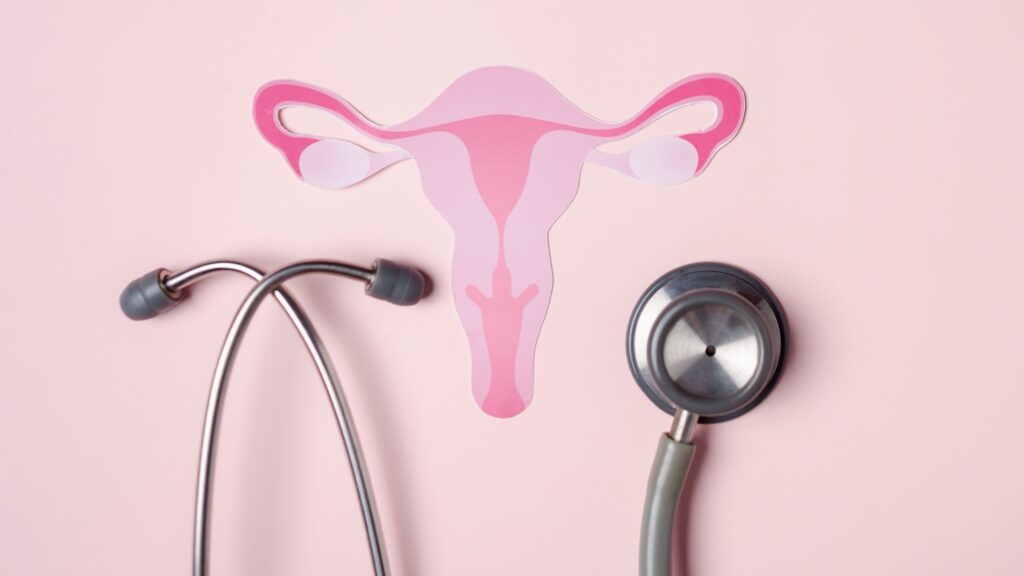Polycystic Ovary Syndrome (PCOS) affects up to 1 in 10 women worldwide and is one of the most common hormonal disorders among women of reproductive age. But what many don’t realise is that insulin resistance is one of the root drivers of PCOS symptoms—even in women who are not overweight.
Understanding the link between insulin resistance and PCOS is essential for managing symptoms, restoring hormonal balance, and reducing long-term health risks.
What Is Insulin Resistance?
Insulin is a hormone that helps move glucose from your bloodstream into your cells to be used for energy. When your cells become resistant to insulin, your body needs to produce more of it to keep blood sugar levels stable. This condition—called insulin resistance—can lead to higher insulin and glucose levels in the blood.
Over time, this can contribute to weight gain, fatigue, inflammation, and an increased risk for type 2 diabetes and cardiovascular disease.
How Insulin Resistance Fuels PCOS
Insulin resistance is present in up to 70% of women with PCOS, regardless of weight. Here’s how it impacts hormonal function:
Increased Androgens (Male Hormones): High insulin levels stimulate the ovaries to produce more testosterone, contributing to acne, hair thinning, and excess hair growth.
Disrupted Ovulation: Hormonal imbalances can interfere with the menstrual cycle, leading to irregular periods or anovulation.
Ovarian Cysts: Higher insulin and androgens can disrupt follicle development, often resulting in cyst-like structures on the ovaries.
Weight Gain and Difficulty Losing Weight: Elevated insulin makes fat loss more difficult and can create a vicious cycle of metabolic dysfunction.
Key Symptoms of PCOS and Insulin Resistance
Irregular or missing periods
Acne or oily skin
Weight gain, especially around the middle
Difficulty losing weight
Excess hair on face or body (hirsutism)
Thinning hair or hair loss on the scalp
Fatigue, mood swings, and sugar cravings
The Functional Medicine Approach
Instead of focusing only on symptom management (like the pill or metformin), functional medicine aims to address the root causes, including:
1. Stabilising Blood Sugar
Prioritise protein and healthy fats in every meal
Avoid refined carbohydrates and sugary snacks
Use gentle fasting strategies if appropriate
2. Improving Insulin Sensitivity
Add resistance training and walking after meals
Support nutrients like magnesium, chromium, and inositol
Spotlight on Inositol: A Natural Ally for PCOS and Insulin Resistance
Inositol is a vitamin-like compound that plays a vital role in insulin signalling, ovarian function, and neurotransmitter balance. It’s particularly beneficial for women with PCOS, especially when insulin resistance is a key driver.
There are two main forms used in clinical settings:
Myo-inositol
D-chiro-inositol
The combination of myo-inositol and d-chiro-inositol in a 40:1 ratio has been shown to:
Improve insulin sensitivity
Support ovulation and menstrual regularity
Lower testosterone levels
Enhance egg quality and fertility outcomes
Studies suggest that inositol supplementation can be as effective as metformin for some women—but with fewer side effects.
Dosage Tip: A common therapeutic dose is 2,000 mg myo-inositol + 50 mg d-chiro-inositol twice daily (total 4,000 mg/100 mg per day), ideally taken with food.
Always work with a practitioner to personalise dosage, especially if you’re also taking medications or other supplements.
3. Reducing Androgens Naturally
Spearmint tea, zinc, and saw palmetto may help lower testosterone
4. Balancing Hormones
Herbal support like vitex or maca may regulate cycles (under supervision)
Restore gut health and reduce inflammation
5. Testing for a Personalised Plan
Consider labs for fasting insulin, glucose, HbA1c, hormones, and nutrient status
You Don’t Have to Do It Alone
PCOS is complex, but it is manageable—especially when you work with someone who can address the hormonal, metabolic, and lifestyle factors holistically.
If you’re struggling with PCOS symptoms and suspect insulin resistance may be playing a role, I can help you create a plan that supports hormonal balance, metabolic health, and fertility—without relying on medications alone.
Download my free 7-Day Blood Sugar Reset to take your first step toward hormone balance and better energy.

